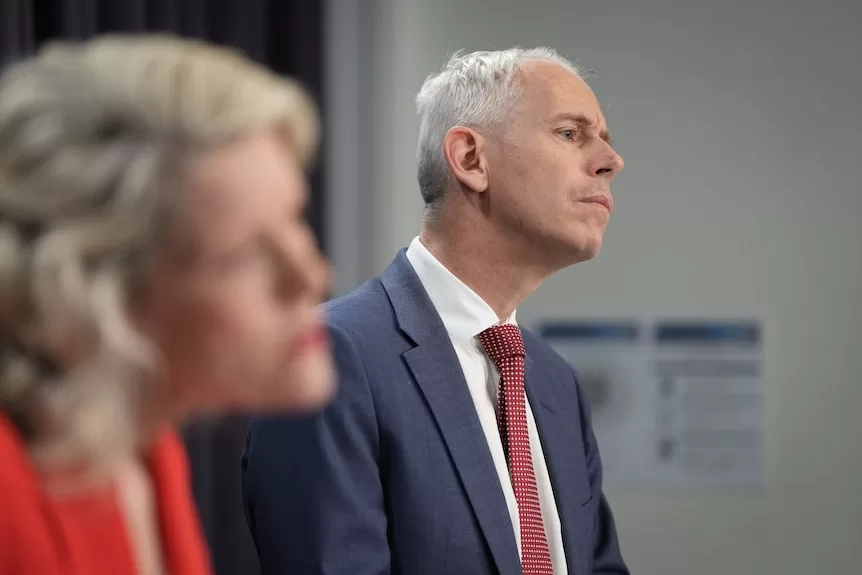- In short: The federal government has committed to monthly public reports on the immigration detainees released into the community late last year.
- The case known as NZYQ has seen 149 people released from detention on strict visa conditions.
- What’s next? The government is closely watching other cases working through the courts that could have implications for the immigration system.
The federal government is promising greater public transparency over its handling of almost 150 people recently released from detention, as it fears further legal challenges will dramatically reshape parts of the nation’s immigration system.
Last year’s landmark ruling by the High Court, declaring indefinite immigration for people who cannot be deported was unlawful and overturning two decades of legal precedent, continues to cause headaches for the federal government as it tries to set up new policies and procedures to deal with a group formerly behind bars.
While the High Court case in November centred on one individual, referred to by the pseudonym NZYQ, the government said a broader cohort were affected by the judgement — leading to the release of 149 people from immigration detention.
Oversight of the group, many of whom are subject to strict conditions such as ankle bracelets and curfews, has fallen to the recently created ‘Community Protection Board’, comprised of Border Force officials and law enforcement experts.
The board will soon begin publishing monthly data relating to the group, including updated figures on how many are subject to electronic monitoring.
It is unlikely to include the number of people the government is trying to lock up again under its new preventative detention regime.
ABC News: Matt Roberts
)
An extra 46 lawyers have been added to Home Affairs and Australian Government Solicitor’s army of solicitors to work on the applications to re-detain those deemed to be of most risk to the community.
The government has been careful to avoid providing details of just how many of the 149 people released as a result of the NZYQ case will be subject to those applications, when the Commonwealth asks state and territory supreme courts to consider locking them up once more.
Home Affairs Minister Clare O’Neil and Immigration Minister Andrew Giles have repeatedly argued that the former Coalition government took three years to make applications to re-detain terror suspects, which was the model the government relied on in developing its latest preventative detention scheme.
“The Government has made significant progress towards applications for preventative detention, but there is a very high legal threshold to be met for a successful outcome,” Mr Giles said.
“We’re working through up to 35,000 documents per person in order to make the strongest possible applications.”
Senior figures within government and the public service fear that further challenges will muddy the waters even further, and lead to even more detainees being set free.
One such case could begin being heard by the High Court in just a couple of months.
The challenge relates to an Iranian man who arrived in Australia by boat in 2013, and is refusing to cooperate with authorities trying to deport him.
Iran has a policy of not accepting repatriated citizens against their will. Previous efforts to get Iran to accept citizens Australia wants to deport, but the individuals oppose, have been unsuccessful.
The government’s plans for greater transparency over the NZYQ cohort comes after months of sustained criticism from the Coalition, which has called on the prime minister to sack Mr Giles for his handling of the matter.
Anthony Albanese has said he supports both ministers, with Labor accusing the Coalition of leaving behind an immigration system in tatters.
Earlier this week, the government was forced to reveal it bungled issuing visas to 149 people, meaning some who breached strict monitoring conditions in the months since will get away with no consequences.
The government insists it is trying to clean up the immigration system, deporting 2,274 people in the last financial year.
That is an increase of 80 per cent on the number of people kicked out of the country the year before, which the government believes is indicative of neglect of the Coalition when it was in power.
